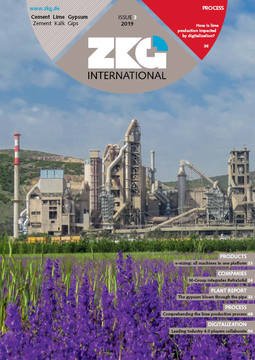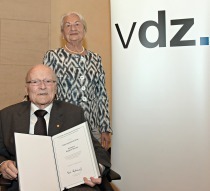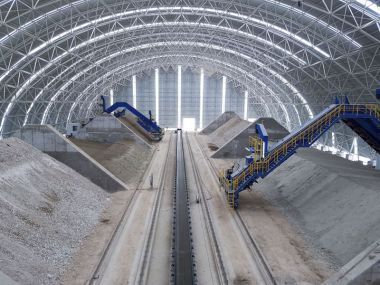German Cement Industry well prepared for Industry 4.0
thanks to extensive digitalisation
The study “Industry 4.0 in the Cement Industry – Status Quo and Perspectives”, just released by RWTH Aachen University, attests to the high level of digitalisation that German cement users have in place for their production processes. With this, the companies have laid the foundation for Industry 4.0 – and even already implemented it to some extent. As Christian Knell, president of the German Cement Producers Association (VDZ) points out, “In many cases, it has become common practice when it comes to controlling our main process. As the study shows, though, the entire process chain still harbors additional potential.” The study’s authors see challenges ahead for the implementation of Industry 4.0, especially with regard to the availability of IT specialists and Internet coverage at the companies’ locations.
The aim of the study is to explicate the status quo and future prospects of Industry 4.0 in the cement industry. The analysis focuses on the in-plant cement production process and the downstream value chain. The industry was intensively involved in the study’s preparation by way of on-site plant inspections, workshops and a written survey. The resultant trove of practical data was evaluated by the RWTH Aachen University by means of a six-stage industry 4.0 maturity model.
The results of the study show that nearly all of the companies surveyed have digital information available and the ability to transmit it. Thus, the process-digitalisation requirements serving as the basis of Industry 4.0 are already being fulfilled by nearly all those involved. Moreover, individual steps of automated processing such as clinker production and cement grinding have achieved an even higher level of Industry 4.0 maturity. “Those processes,” Knell explains, “are already being controlled with extensive autonomy and continuously monitored via control stations. As a rule, only critical situations require active intervention by the employees.”
The shortage of skilled workers constitutes a major challenge for the implementation of Industry 4.0 in the cement industry. “Already, half of the companies surveyed lack employees with an IT background, and demand is still rising”, explains Prof. Sigrid Brell-Cokcan of RWTH Aachen University. Moreover, the frequently inadequate Internet bandwidths available at plant locations, plus concerns regarding data security, act as major obstacles to the widespread use of web-based solutions (e.g. cloud services).
As regards the downstream value chain, the study has identified two trends for the cement industry: increasing automation in the production and use of concrete through new technologies in the concrete and construction industries, and migration of the construction industry toward holistic digital modeling (Building Information Modeling, BIM). “The need for building material manufacturers to provide detailed product information in digital form is bound to increase,” Brell-Cokcan stresses, “and the cement industry can benefit from BIM as an instrument for plant planning and maintenance.”
The study is a contribution by the social partners to the German Cement Industry’s sustainability initiative, which was launched in 2002. It has the support of the Social Policy Working Group of the German Cement Industry (SPADZ), the German Cement Works Association (VDZ) the industrial trade unions Bauen-Agrar-Umwelt (IG BAU) and Bergbau, Chemie, Energie (IG BCE). The initiative applies itself to topics of central importance for sustainable development across the sector.
//www.ip.rwth-aachen.de" target="_blank" >www.ip.rwth-aachen.de:www.ip.rwth-aachen.de




